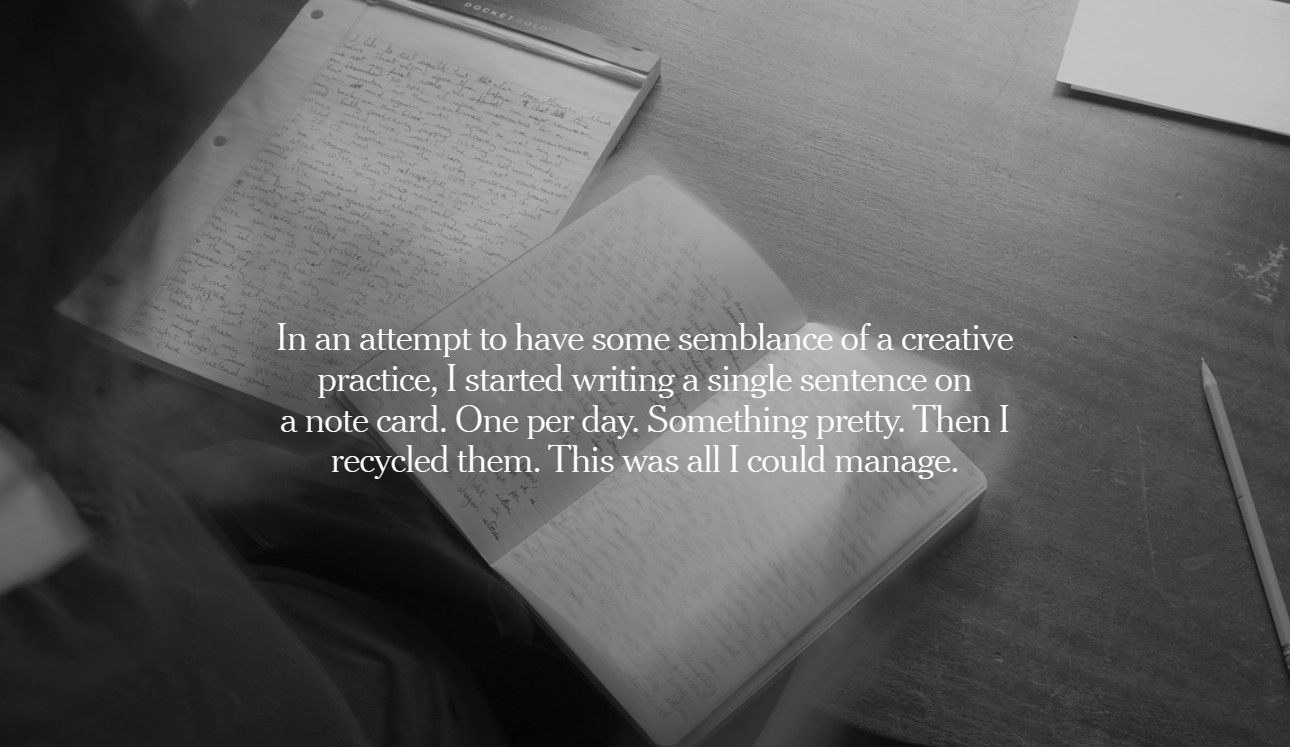 A week and a half ago, The New York Times published an essay called "Rebuilding myself after brain injury, sentence by sentence" by writer Kelly Barnhill about her experiences with a traumatic brain injury. Barnhill, who writes children's literature, fantasy and science fiction, fell down the stairs and got a concussion that left her deprived of the ability to do her job writing fiction or even remember words and their meanings. "Healing a brain injury is the process of rebuilding not only tissues and cells and the connections between those cells, but also memory, thoughts, imagination, and the fundamentals of language and our very concept of ourselves," writes Barnhill, an author of children's literature, fantasy, and science fiction. "I am rebuilding myself, you see. Right now. Sentence by sentence." She goes on to cite the fact that "1.5 million Americans experience a traumatic brain injury each year," and that "many more suffer neurological symptoms from other issues, including long Covid, and experience the same kinds of cognitive unraveling that I have learned to live with over the past two years." It's a tough, moving piece, as she details with excruciating vulnerability all of the things she's lost in the wake of her brain injury and is trying to rebuild, such as remembering the word for "sock" and "stripes" and going to doctor after doctor seeking answers. The essay itself took her months to write, she says, and lately she's been jotting a few sentences at a time down on notecards in an effort to get her strength back, but that's about all she can manage. She goes on to ruminate on the relationship between memory, story and creativity, and to suggest that without these things, we're not fully ourselves. "Am I still me?" she asks. "Will I ever be me again?" I taught this essay in my Creative Nonfiction class at the Siegal Lifelong Learning center, because it's an example of a public essay that's also incredibly personal, and one that weaves the public and personal together quite effectively and powerfully. I think I related to this essay so strongly because of my own experiences with creative loss. I've never had a traumatic brain injury, but I've struggled with the inability to write in recent years and I've often wondered, just as Barnhill does, if I'll ever write again. But no matter what I go through or what happens to me, not only does my desire to write never go away, but my ability to write stays with me. Maybe this is because even when the brain endures trauma, it often has the ability to heal. "Cognition requires rest," a doctor tells Barnhill, when she asks when she's going to get better. "Some of us need more rest than others. But your brain is learning. It doesn't know how to stop learning. Give yourself a break and let your brain do its job."
0 Comments
Leave a Reply. |
Archives
March 2024
Categories |
 RSS Feed
RSS Feed